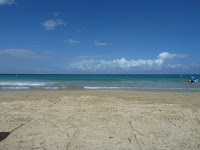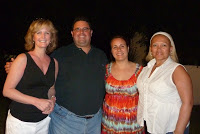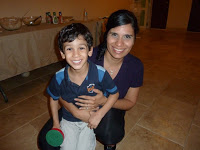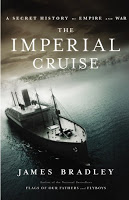Island Life a Struggle with Hemophilia: Arindra’s Story
Located off the southeast coast of Africa, Madagascar is the fourth largest island in the world. It is famous for its unique wildlife. Since gaining independence from France in 1960, Madagascar has experienced political instability. The economy is supported by exports of paddy rice, coffee, vanilla and cloves. Despite a wealth of natural resources and active tourism industry, it remains one of the world’s poorest countries, and suffers devastating cyclones. It is heavily dependent on foreign aid—and this includes hemophilia. With a population of just over 29 million, life expectancy is only about 68 years. Nearly 60% of the population is under age 25. Health expenditure is 3.9% of GDP (compared to 17.3% in the US).

This is a little story about me. My name is Arindra Ravelojaona. I was born December 16, 1975 in the Region of Tulear, in south west Madagascar.
I just have one youngest brother without hemophilia. My parents were simple people. I’ve finished high school in 1994 and I liked learning English language. But I lost my father when I was 20 in 1995. My mother was a housewife, earning no income, and because of the death of my father I couldn’t follow my studies. I had to help my mother for everyday living.

So I got married at age 24 and had a baby girl in 1998. In 2001, I had Mikaela, my first son.
When he was three, in 2004, we have decided to circumcise Mikaela. It was performed at the hospital, but then a problem started—the blood didn’t stop. My husband and I went back to thie hospital where the doctor sutured him, but it was still bleeding. Mikaela had blood transfusion everyday for about five weeks.
At that time my husband and I worked with the Shattenbergs, a missionary family (that’s why I know a little about English). They helped us by sending us to Antananarivo, the capital of Madagascar, through “Helimission.” We went from the hospital here in Majunga, to the airport, got in the small plane of the Helimission, and ninety minutes later arrived at the airport of Antananarivo. Thirty minutes later, we were at the one the biggest hospitals in the capital: HJRA, a large children’s hospital.
One again Mikaela had surgery and we continued with the blood transfusion. The medical team did some analysis there and sent the results to the “Institut Pasteur.” We waited until he recovered and finally had the result: hemophilia B.
Mikarla’s father couldn’t accept the diagnosis. The doctor explained to us what our son had, and that our son inherit it from me. Two years later, in 2006, my husband left me and my two children for another woman. By grace I had a job at the French school next to our house, so I could feed my little family.
Years went by and in 2009, I met someone. He accepted to walk with me and my kids, and we got married in 1992. I gave birth to a second son, Toky Hir’Aina, in 1993, but the same problem happened again. When he started to crawl, he had bruises on his knees and we knew that he has hemophilia too.
In 2019 we decided to circumcise our boy. Fortunately by then a rich family that had a son with hemophilia decided to build the Malagasy hemophilia association: “Association pour le Bien Etre des Hémophiles à Madagascar” (ABEHM), which is now affiliated with the World Federation of Hemophilia. So we had some boxes of factor IX at that time because their son has severe hemophilia B.


So Mikaela, my first son, didn’t receive factor IX until he was eleven years old. My second son received it since he was little. When we have planned to circumcise him, we had time to prepare him. We had almost a one week’s supply of factor IX and then we did the surgery.
We had to stay at the hospital until he recovered, for almost 20 days. Ten days after we were back home, my second husband decided to leave us also, telling me: “I’ve lost my time with you. You didn’t say the truth to me. This boy won’t be normal. I need to have a normal boy.” These were his words in court; he was asking for a divorce.
That was the worse day that I’ve ever had. I cried all day long for a long time. But God is in control; I didn’t give up. We passed through Covid-19 and I found a new job at the Anglo Franco School where I work until now. I work for 28 hours a week and I earn $1.50 per hour. That gives only $42 a week. So I had to find an extra job. In total, now I get double this amount every month.
But if I calculate all the expenses, it’s $250 per month for house rental, school and college fees, food and medicine. But most of the time I don’t earn that amount.
Since January 2024, we eat twice per day: a small breakfast and lunch. If there is a leftover, we take it at dinner time. Costs are increasing every week. And sometimes I have debts.
One sad story is about Mikaela, because of the lack of enough factor IX, he couldn’t continue his studies. He has only finished primary school. He had bleeding and pain with his knees; he was in a wheelchair for two years [2014-2016] and then we did physical therapy and he walks now. But when he feels tired his knees and ankles swell; all his joints are hurting him.
He is clever; he has a keen mind about computers. But because of his condition, he stays at home and help with the household. Toky Hir’Aina, his little brother, has just finished primary school.
He is in grade 6. He is really intelligent. He was the first in his class for the three first periods.
I asked God every day to help me with “angels” that He will send to our life; to help us to face the expensive life. As you know, Madagascar is one of the poorest states here in the Indian Ocean.
But it doesn’t mean that I will give up—no, no, no!

I am single now and I am not going to find another problem. I am focused on the future of my kids. I’m taking care of Mikaela and Toky Hir’Aina and my mum, who is 74 years old. She is a big help, because she helps at home. We had a real problem for the last nine months because, it was August 2023 when the boys last had factor IX.
Previously, we participated in the annual camp for the family and the patients, but because of our financial situation and the lack of factors, we didn’t attend.
I’m a volunteer of the Regional Antenna of our national organization here in the North West of Madagascar. There are few boys with hemophilia A and B here and they are also having a hard time.
I will always try to do and give the best I can do. But it’s not enough. I’m asking anyone reading this to help through their kindness, to help us with living expenses. Thanks a lot for reading. I hope that God will answer my prayer through all of you.
If you are interested in helping one time, please contact me: laurie@kelleycom.com






